
Egging on the opposition
In the past few years, the language of online debate has turned particularly virulent. People voicing different views have been tarred with various labels from "brain-dead" to "traitor." Lobbing projectiles at those who disagree has become commonplace. Thankfully, eggs and shoes are usually the weapons of choice, not cleavers.
Last October, a young man hurled a shoe at outspoken scholar Sima Nan during his lecture at Hainan University, missing him by two meters.
A month before that, Han Deqiang, a professor at the Beijing University of Aeronautics and Astronautics, slapped an 80-year-old man whom he said had insulted and abused the name of Mao Zedong during anti-Japan demonstrations.
Wu is also no stranger to physical confrontation. He has been nicknamed by netizens as "the chief representative of the 50-cent party" since they believe Wu always speaks for the government.
In July last year, Zhou Yan, a female journalist for Sichuan TV and frequent critic of the authorities, challenged Wu to a "duel" at Chaoyang Park in Beijing. Onlookers, made up mostly of Zhou's supporters, cheered as she kicked and threw eggs at Wu. Controversial artist Ai Weiwei was also present and the details of the clash were re-tweeted thousands of times on Weibo.
There seems to be a trend among the intellectuals to seek to provide entertainment to the masses, according to author and blogger Wang Junyi.
"The Chinese intelligentsia produces a lot of intellectuals who act like characters in Peking Opera. Sometimes they get closer to the leftists to share their benefits, sometimes they get closer to rightists when they are afraid they have already been forgotten by the public."
Differing stances
On January 27, another outspoken public intellectual Ran Yunfei held a Beijing signing for his new book Give Freedom to Your Loved Ones, a collection of his critical thoughts about China's education, which went smoothly. But even during the launch, he repeatedly joked that the people present were there to hit him, instead of to buy the book.
Ran said the signing went peacefully probably because his readers are mainly parents and children, while Li's readers are often young people who easily get carried away."
Ran said there is no real public debate in China, but he is calling for a rational way to voice different opinions.
Li agrees, saying that since "there is no way to debate, people have no choice but to give you a cleaver."
Hu says he is afraid his "gift" was a bad influence, but he believes this is part of a painful path toward democracy that the country has to undergo.
"No matter if you are from the left or right, some people will choose violence when their views are being ignored," he said.
Ran said he believes all the disputes could be solved through rational communication. "Ideological difference can be solved through ideological communication, not violence," he concluded.

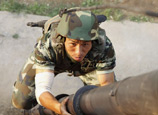
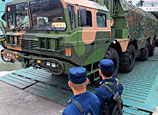
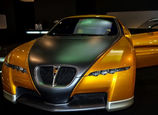

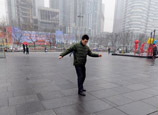
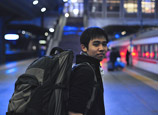
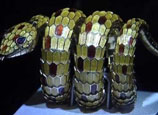
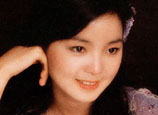

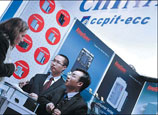






 A Taiwan student's adventure in Beijing
A Taiwan student's adventure in Beijing


![]()
